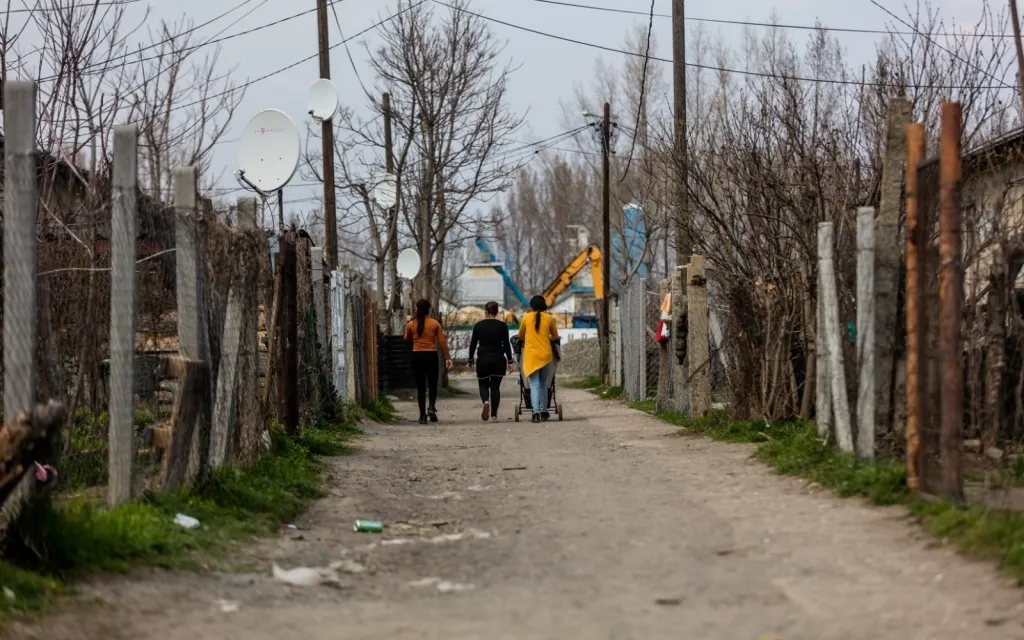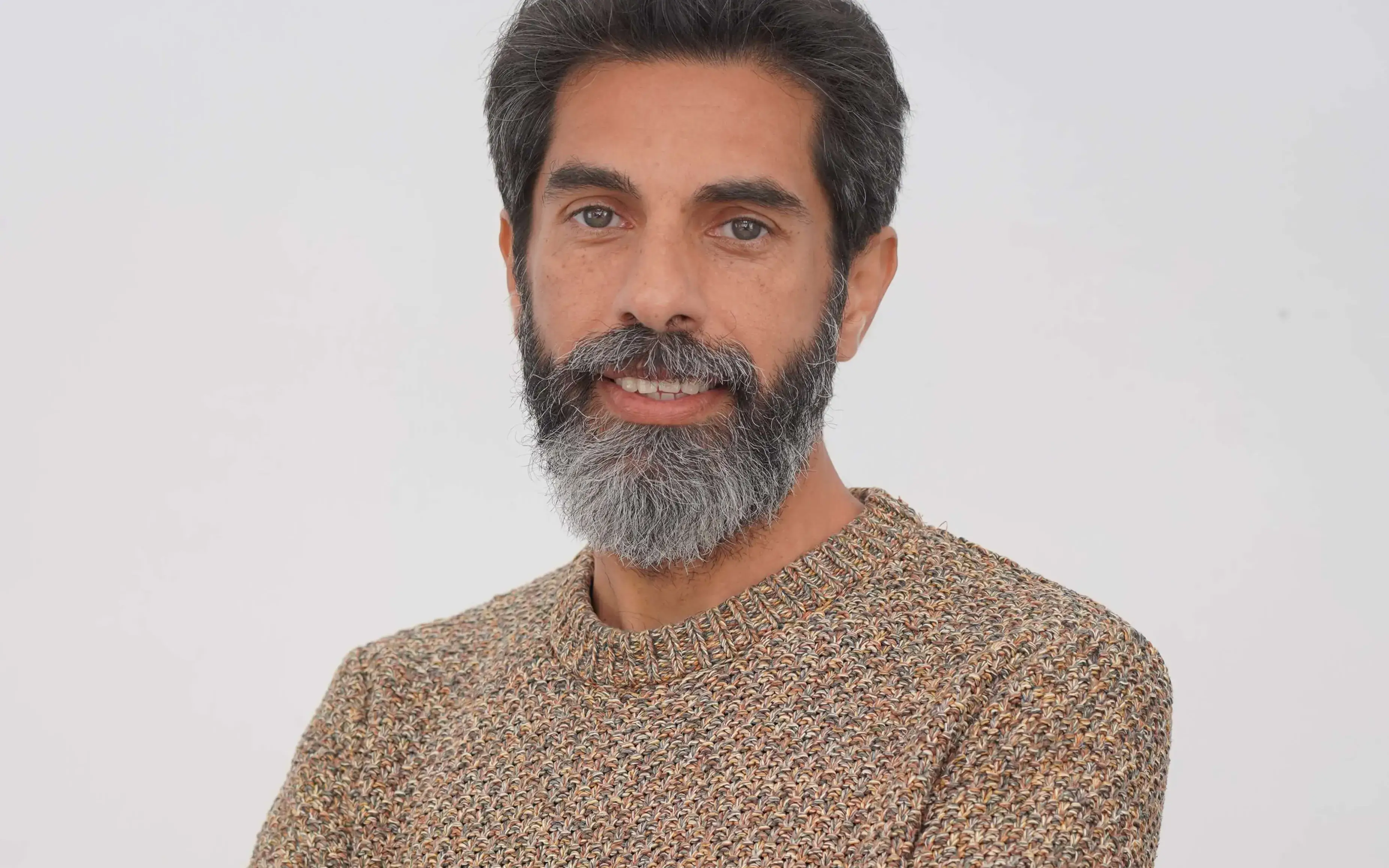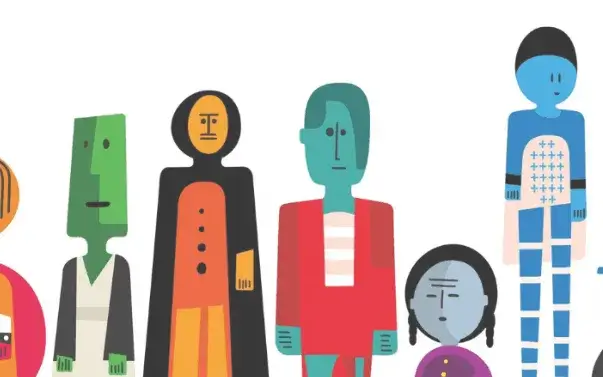The communications manager of European Roma Rights Centre talks about the discrimination that Roma people is suffering and how the pandemic has exacerbated the inequalities.
There are some evidences that several European governments have taken advantage of Covid-19 measures to impose discrimination rules on Roma people. Temporary walls around Roma areas in Bulgaria or the imposition of lockdowns in five entire Roma settlements in eastern Slovakia. Have some European countries violated the rights of Roma people during the pandemic?
To be honest, in most European countries the authorities have treated Roma exactly the same during the pandemic as they always have before – that is with neglect, discrimination, and institutional racism. The many human rights violations, which have been documented during the pandemic emergency measures against Roma are sadly, nothing new for millions of marginalised Roma.
At the ERRC we are unfortunately used to dealing with police brutality cases on a monthly, if not weekly basis. The same for forced evictions, these are a common occurrence throughout Europe before the Covid-19 pandemic. Unequal access to medical services, to water, to housing, basic infrastructure – for many Romani communities, this is the norm. All this pandemic has done is exacerbate the already severe inequalities and outright discrimination existing in our society against Roma.
For many Europeans it has served to open their eyes a little to a continent wide apartheid, which had been going on in plain sight for generations, but has now received a little more attention due to the increase in human rights violations during the emergency measures.
Do you have any data about that?
If you want to know exactly how Romani people have been affected, and even targeted by emergency measures, you can read about it in the ERRC’s September 2020 country-by-country report Roma Rights in the Time of Covid.
From your point of view, is the Antigypsyism increasing in Europe?
Unlike most other forms of racism in Europe, antigypsyism is intrinsically part of European culture. It is fundamental to European societies because it grew alongside what it means to be a European over the centuries. Simply put, it is part of European culture to be racist against Roma.
Looking at it from this perspective, it is difficult for antigypsyism to increase much more when it is already so interweaved in the fabric of society. What is rising however is a more targeted, almost weaponised form of antigypsyism. We are living in a time when once again politicians talk about Roma as “the gypsy problem.” Roma are talked about as a demographic threat, as a policy issue by far-right politicians who use Roma as an easy target to gain cheap votes from an antigypsyist electorate. The more these populist politicians incite hatred against Roma in their political rhetoric, the more we see hate crimes rising against Roma. There is a direct relationship between hate speech (online and in the media) and violent hate crimes against Roma.
Could you give us an example?
We see this frequently in Bulgaria where far-right politicians join with angry mobs to evict entire Romani communities from their homes most summers. The hatred spread by the far-right in Italy has led to anti-Roma protests and violence from fascist street movements. In France, there were as many as 25 attacks on Romani homes in April 2019 after coordinated fake news on social media reported Roma were stealing children in white vans.
In almost every European country you look at, this anti-Roma rhetoric is on the rise, and with that comes an increase in hate crimes. Eventually this leads to anti-Roma policies implemented by governments wishing to be seen to be ‘tough on gypsies’. You can see this in Bulgaria with the bill on Roma integration which seeks to limit the number of Romani births by providing free abortions for Roma – this is a eugenic ideology, unchanged since it last reared it’s head in Europe over 75 years ago. If left unchecked this kind of rhetoric leads to creeping fascism in European societies and disastrous consequences for all minorities.
Last February, ERRC launched a report on the situation of Roma children in state care in five countries. The document confirms that the discriminatory institutionalization of Roma Children persists. What kind of discrimination are Roma children suffering all over Europe?
The persistence of segregation and marginalisation of entire Romani communities is probably the discrimination which Romani children are most affected by. Growing up in a village completely cut off from society, from public services, jobs, opportunities – that is what keeps Roma and their kids excluded. With this comes additional discrimination – if they are lucky enough to attend a school, there is a high chance they will be taught in a segregated class, away from the non-Roma kids their age. Not only does this mean they are denied an integrated education, usually it means they receive an inferior education from a system which assumes they will not amount to anything. Many Romani kids leave their segregated schools barely able to read, let alone access the labour market.
At the same time, Romani children in many countries are drastically overrepresented in the state care system. Authorities take kids away from Romani families at a higher rate than the rest of the population. Often this is because of poverty (which is an illegal practice), and only reinforces a system of racism which made those people poor in the first place. In some countries these kids are then put into children’s homes. They grow up without the support of their own community, while still being stigmatised by society for being both Roma and an “institution child”.
There is the impression that Roma people are only visible in the negative way. How can the society fight against this type of stigmatization?
There is very little mention, or appreciation of the contribution made by Roma to Europe. If antigypsyism is a part of European society, then Roma must be as well right? Today, in most countries, Roma are still treated as somehow foreign – as if the last 500 plus years have not been long enough to make Romani people European.
I think governments could direct more funding towards museums, campaigns, and other initiatives, which highlight how important Roma have been in carrying European culture for centuries. In music, dance, cuisine, even the languages Europeans speak – Romani people have had an outsized influence on developing the cultures of Europe. This should be celebrated and taught in our schools. The only mention most children in Europe hear of Roma as children is stereotypes from adults. A curriculum, which celebrates diversity, highlights parallel histories, and does this in a way which makes it unexceptional would begin to normalise ethnic relations to some extent.
In your opinion, what are the main challenges of Roma people in the immediate future?
There are immediate challenges caused by the Covid-19 emergency measures, particularly around education where distance learning will probably mean a whole generation of Roma dropping out of school because of lack of access to internet or even electricity. There was already a wide educational gap between Roma and non-Roma, but it is about to get a whole lot bigger.
At the same time, the recovery from the pandemic is likely to exclude Roma in most countries. Governments have excluded Roma from policy making for years so there is little reason to hope that they will suddenly prioritise the welfare of Romani communities now in the plans for recovery. We have already seen this in the emergency responses to the virus – Roma have been denied equal access to healthcare and public health information, quarantined in their neighbourhoods with no provision for protective or hygienic equipment, left out of financial alleviations measures, and subject to increased state violence from local authorities and law enforcement. As Europe recovers, it is likely the approach to Roma inclusion will remain the same from most authorities.
What role are non-profit organizations playing to support this group of people?
Non-profit organisations should be informed by, and where possible led by, Roma themselves. A development approach to human rights abuses of Roma is not very useful in Europe in the long term; it places no power in the hands of the group who are being discriminated against. At the ERRC we do this through direct community legal action in the countries we work in. It is empowering for Roma to stand up for their own rights and take legal action against racist state authorities, rather than an NGO work on them as if they were clients.
Lots of great work is being done at a community level by charities – during the pandemic they have been invaluable in providing water, hygienic equipment, food, health information, educational materials for kids, and making sure that Roma left out by the authorities are not completely abandoned. Many times these are led by Roma themselves in their own communities, which is an act of resistance against state violence and neglect.
What measures do you propose European Union must implement to take into account Roma people and put away the discrimination that they are still suffering?
The European Union had the opportunity to make it costly for member states to systematically abuse the rights of Roma, by linking non-compliance with the new EU Roma Strategic Framework with funding implications. They opted instead to make the new framework a less ambitious copy of the previous strategy, with no binding measures at all to hold member states to account.
I think a lot of ordinary people look at all of the money, all of the strategies, on a European level which have gone towards Roma inclusion and think: why are there still all these problems? It must be the Roma just don’t want to integrate, they’ve had all these opportunities and are still living like this.
Most people don’t realise that: firstly, most of the power to change things lies with the member states themselves or sometimes even regions and local authorities. And secondly, the EU have demonstrated little in the way of actions which would actually hold member states to account when they discriminate – all the millions of euros spent is not necessarily spent in a way that will end discrimination. In some cases, EU funding actually has been used to fuel segregation rather than end it. All the strategies, inclusion frameworks and policy documents in the world mean nothing if they are not binding. There has never been a legal binding document on Roma inclusion, which compels member states to fix systemic racism against their Romani citizens.
The European Commission could learn something from this approach – they could actually take a principled stance against specific instances of racism when they occur (rather than condemning ‘all forms of racism wherever they occur’). They could also take meaningful action against member states who abuse the rights of Roma by reinforcing their own Racial Equality Directive (RED). Currently it is a toothless mechanism, which the EU’s own Fundamental Rights Agency has described as not fit for purpose when it comes to defending Roma against discrimination.
The ERRC, as a legal organisation, are increasingly alarmed by the state of the justice system in many member states. The rule of law is being severely undermined in several EU member states by denying Roma access to justice – notably in Bulgaria, Hungary and Slovakia. Roma who are the victims of human rights abuses face a wall of injustice at every level – from the initial police investigation, to the public prosecutor, to the judiciary itself – justice is not done when it comes to cases involving human rights abuses of Roma. This is not only a Roma rights issue. The ability of the justice system to function in service of a country’s citizens is a pillar of democracy. If the EU is unconcerned with, or unwilling to challenge, the backsliding of democratic norms in some of its Eastern member states then there is little hope they will take meaningful action to stop systemic racism against Romani citizens.







Add new comment